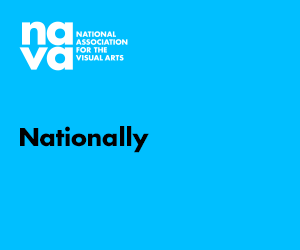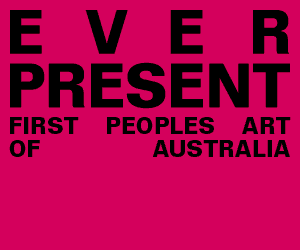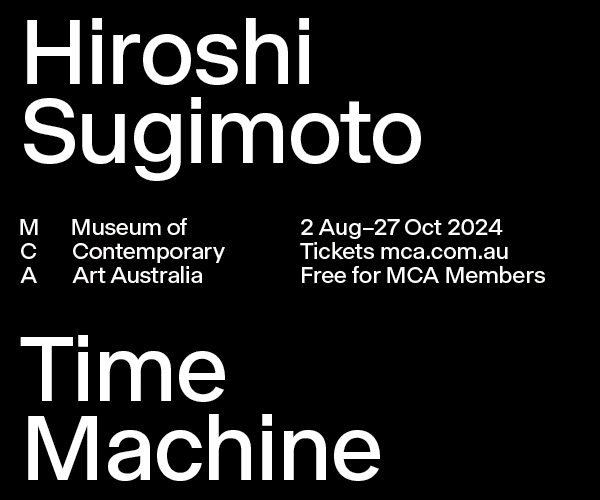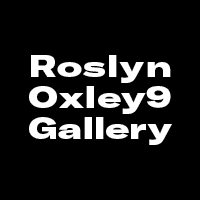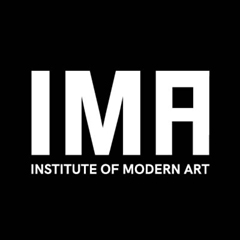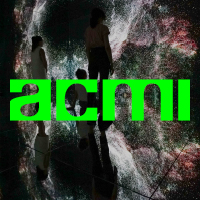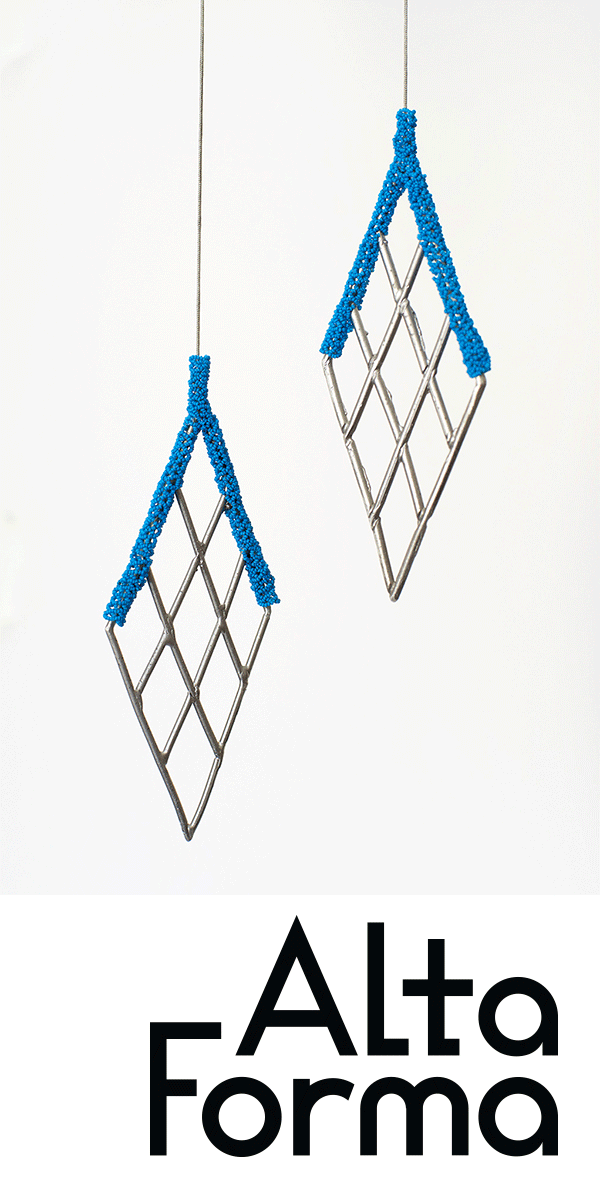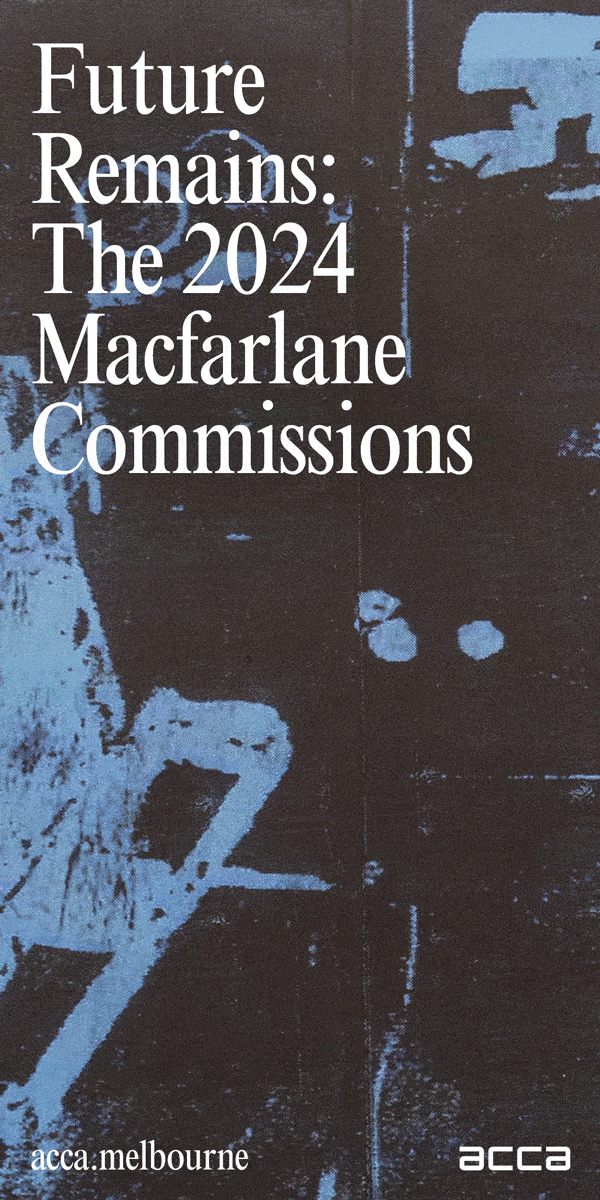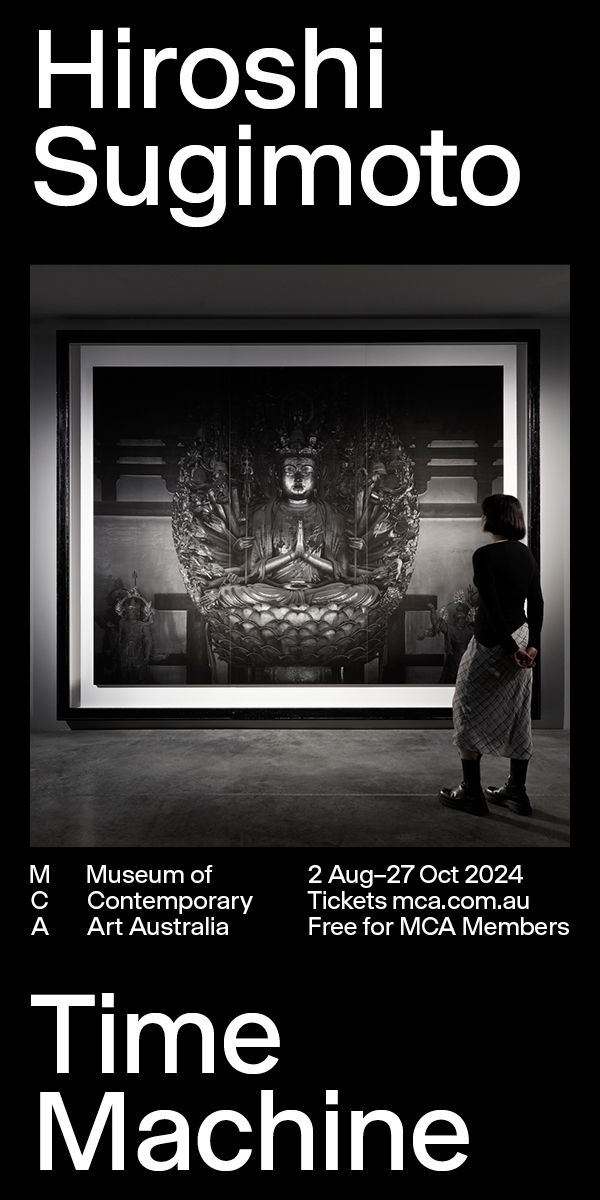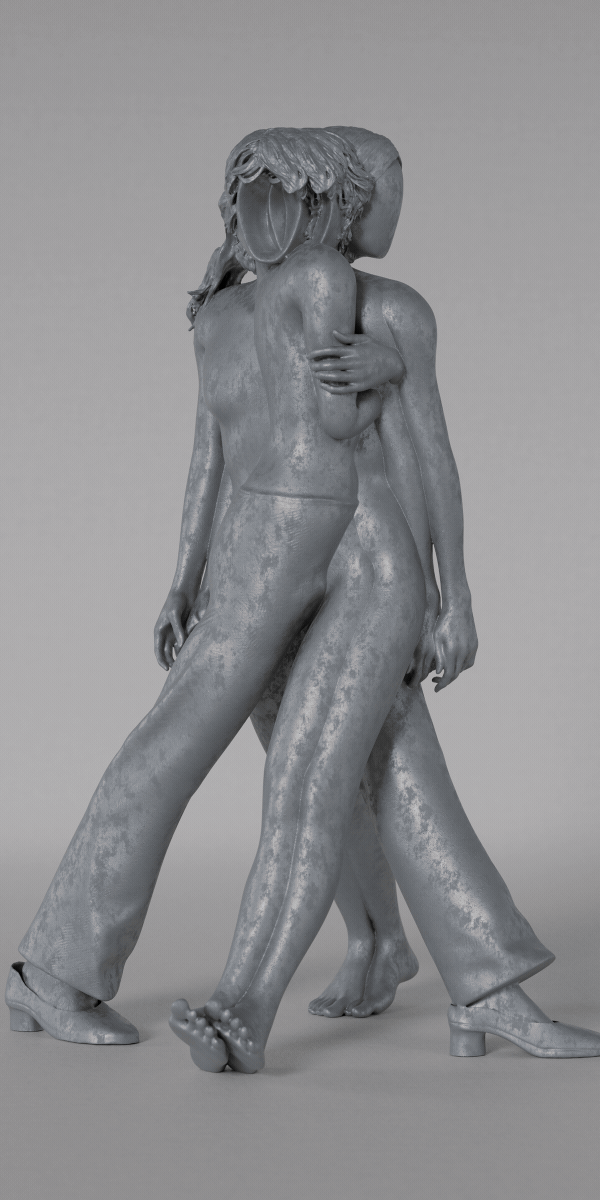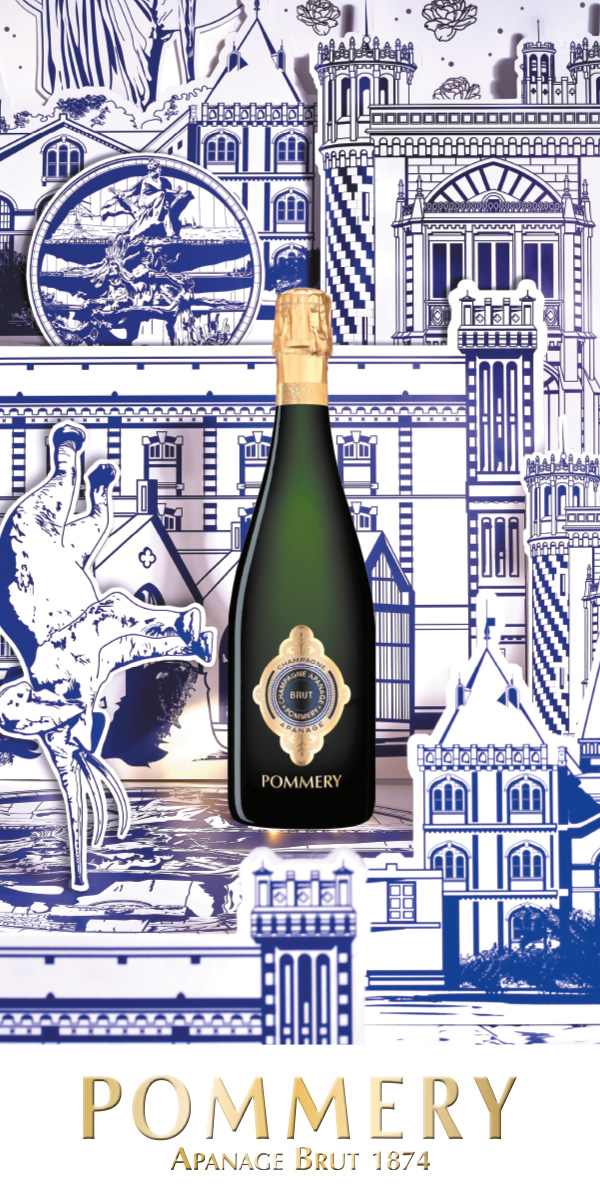Roman Coppola on Nostalgia and Legacy
Ahead of his visit to Australia as part of Semi Permanent’s Never Permanent 2023, Roman Coppola spoke to VAULT about a life in film, his working relationship with Wes Anderson and nostalgia.
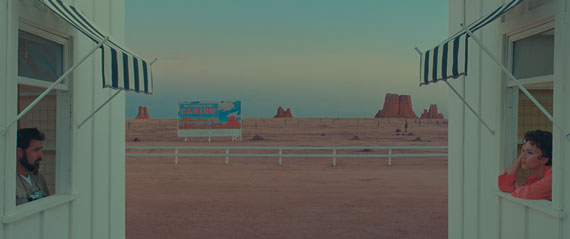
Image credit: (L to R) Jason Schwartzman stars as "Augie Steenbeck" and Scarlett Johansson stars as "Midge Campbell" in Wes Anderson's ASTEROID CITY, a Focus Features release. Courtesy of Pop. 87 Productions/Focus Features
Roman Coppola is a director, screenwriter, producer, inventor and co-founder of Decentralized Pictures (DCP). He earned his first BAFTA nomination as visual effects director on Bram Stoker’s Dracula (1992). Alongside making his own feature films CQ (2001) and A Glimpse Inside the Mind of Charles Swan III (2012), Coppola frequently collaborates with Sofia Coppola and Wes Anderson on projects such as The French Dispatch, Lost in Translation, Moonrise Kingdom – which earned him an Oscar nomination – and Asteroid City.
As president of pioneering independent production company American Zoetrope, Coppola has producer credits on films like Somewhere, Marie Antoinette and Walter Salles’ On the Road. He is also the founder of commercial/music video production company The Directors Bureau, through which he has directed iconic videos for the likes of Sir Paul McCartney, Daft Punk, Air, The Strokes and Phoenix.
What is your impression of Australian film – both our filmmakers and performers? Can you discern a kind of distinct Australian sensibility in our filmmaking?
Yeah, I mean, it’s hard to say. I hate to characterise things too much. But I’m friendly with Nash Edgerton so I’ve seen many of his films and television shows. I have a lot of admiration for him. He is very talented. He’s done some really amazing stuff. As a seasoned stunt man able to weave in stunts in a really clever, effortless way, he is always at the highest level. I guess there’s a sense of humour, a sort of outrageous anything-goes quality to his films.
When I say that though, there’s also a kind of restraint. You know, there’s a sense of humour that’s kind of bold, but not silly or too broad. As an American, you think of Mad Max and that type of thing as the iconic flavour of Australia – which is also so embedded in American culture and evokes this kind of wild west, edge of nowhere feeling. Walkabout (1971) was a very big movie when I was a kid, and it also formed my impression of that part of the world. But in terms of contemporary Australian cinema at this moment, it’s hard for me to be super conversant or knowledgeable about what’s happening. But Nash has sort of been the eyes through which I see things. And of course, his brother has also become a very prominent actor. I appreciate their sensibility and their talents.
From all the ways in which you describe Edgerton’s work, it seems possible to draw parallels with your work and your sensibility in that there’s a playful sense of humour as well as bold elements in terms of stunt work or choreography. Do you think that’s a fair characterisation of your work? How would you characterise your body of work to someone who hadn’t encountered it before?
I follow my curiosity, you know, that’s what I’m all about. When someone proposes something and I’m invited to try something that’ll bring a new experience, I’m very inclined towards that. Recently, I did this thing with Suntory whisky and Keanu Reeves – it’s coming out in a few weeks. It’s a documentary about the craft of Suntory whisky-making, and also about the craft of Japan. And so that was a chance to deep dive into Japanese culture, which fascinates me.
It’s been maybe two years now, but during Covid times I was asked if I would shoot some sequences for a Mariah Carey Christmas Special. That was kind of hard to pass up. I did something for Paul McCartney’s music video, and I have some long-time colleagues [I work with], like Phoenix or The Strokes, old friends. What motivates me or drives me along is, “Hey, what would you do with this?” or, “How would you like to have this experience and travel to this place?” That’s at the heart of how I make choices. Have I done it before? And if not, am I interested and is there something to learn? Some kind of aspect that will sate my curiosity? Coming to Australia and having this experience kind of relates to that.
Collaboration is very central to all of the work that you make, and in particular you’ve had a very fruitful relationship with Wes Anderson. What do you think makes that partnership so unique and how do you see your different approaches as complementing one another?
Well, you know, we’re friends, and we are often in touch and we care about what’s going on in one another’s lives. That’s at the core of it – we get along and like any friends, we have things in common. We also have things that are different, but we find the mutual core of it. Wes and I are quite different. I think as writing partners we have different perspectives and different places our imaginations go. Not only is he the writer – and we work in our curious way – but he’s also the filmmaker making the movie. He really has the final say. He conceives the premise and the setting of the movie he wishes to make. It’s not an equal partnership, but I have some ability to draw out things that he’s trying to express. Things that are lurking, but without a partner and another kind of colleague, they’re sometimes hard to access.
We have a social component when we write, so we’ll have a nice meal or we’ll travel or do something. And that is part of the process. But our process really has to do with some kind of movie imprinted into his consciousness, and we’re just trying to get it out. My experience in filmmaking started as a second unit director, which is an interesting creative endeavour where you’re getting shots in service of the director so there’s no confusion like,
“Oh, I think this close up should be like this.” It’s not about my opinion. It’s really about trying to get into the mindset of the director. And that’s kind of what
I do with Wes when we’re writing.
I try to see what it is that he’s looking for. There’s an aspect of me in a lot of these movies, like, “Oh, this episode happened to me” or, “That’s a reference to something in my life experience.” It is very personal, but it’s all these little things that might relate to a particular movie. That’s the task, to sort of probe a thing that almost exists. Like Asteroid City existed a couple of years ago and we were just trying to dust it off, find it and define it. He has the antenna.
So, it’s more of a long-term, iterative process where you’re bouncing off one another over an extended period, rather than sitting down in front of a document together?
There are different steps, and there is an early step where it’s more [of a] discussion. It’s like a sculpture – there’s a boundary [and] the main thing, and you’re kind of peeling away at it. But there is a point, and it’s a relatively early point, when we start at page one. It’s like, “This happens and then this happens. Okay, what’s next?” It’s very practical. There’s a sense of what it is,
but sometimes it can be fractured. I mean, if you look at Asteroid City, it’s quite peculiar. It’s a television show about a play, but it’s represented as a movie. There’s [also] a quality of movies from the 1950s in the desert setting. Actors at that time [had] a lot of passion for study and method, [then] you think of New York and [how] those actors would do theatre but also do television. That wasn’t the premise, like, “Hey, let’s make a movie that was built in this construction.” It was just where our interest led us. And a lot of it [is] maybe something that Wes and I share, and I think maybe all artists – you’re curious about something […] and it sort of populates what you’re thinking about.
How else does that sense of nostalgia inform your process, whether you’re working with your sister on a project like the upcoming adaptation of a memoir, Priscilla, or creating something original informed by a nostalgic sensibility, as in your work with Wes? How do you bring a fresh perspective to established texts or stories? Is that something that you’re conscious of the need for?
Yeah, I haven’t thought about that at all. But it’s interesting because I’ve made two films personally – my writing and directing – from the ground up. They’re both rather nostalgic and they’re both movies that pertain to something about my story or things that interest me personally, maybe something I experienced. I have a lot of early memories, and they really loom larger than life – in the same way that an early crush on a girl in fourth grade could feel so huge. And that was something we tapped into for Moonrise Kingdom, for example. I think nostalgia is often charged with really powerful feelings, and those are often relevant for wanting to tell a story. [When] you make a movie, you’re transported to that time and place.
To me, part of the fun [is] creating a movie world like we did on Dracula, for example – my dad’s film, which I was involved with. You go onto the set and there are these extraordinary costumes and you’re in a haunted house. It speaks to the magic of the movies that I like. I grew up with King Kong and The Adventures of Robin Hood and that kind of stuff, which portrays this magical world. I tend to like things that are set in the past. I may be conflating nostalgia with the sense of a journey that’s part of movie making, but I definitely cop to the notion that there’s an aspect of both nostalgia and also magically being transported to another time and place that draws me in.
Related to this notion of nostalgia is the idea of legacy. You obviously come from a filmmaking family for whom technology and creativity go hand-in-hand. Is this notion of legacy preservation something that you’re consciously working towards?
I don’t really think about it too much.
It’s interesting because I’m 58 years old, [but] I feel like a younger person. There’s a certain point where [I realise], like, “I did it, oh yeah, I worked with The Strokes.” You know, they’re a cool band, but they’re a 25-year-old band now. There’s a slow processing [of] the fact that I’m in a certain place in my career, and so I begin to think a little more [urgently]. I only have so much time to do things that matter to me. It’s curious because, as I mentioned, I’m sort of predisposed to be like, “Hey, I haven’t done that. I’ll try that.” Sometimes you find yourself [thinking], “Well where am I after exploring all these things
and what does it all add up to?”
For me personally, I do feel [that] Decentralized Pictures (DCP) is very much a modern version of American Zoetrope’s founding principles, which are: don’t be obliged to Hollywood; make your own personal work however you can; cinema as predominantly an art form that is director-driven, that sort of auteur feeling. That’s largely what we espouse – individuality and finding your voice. I think part of growing up around American Zoetrope is that some of my dad’s ideas and love of technology filtered down. Recently my dad shot his film Megalopolis, which he’d been thinking about for a long time. When
I was just out of high school, my summer job was to collect visual reference material for that film. And then, 40 years later, we were shooting it in Georgia. So that’s kind of exciting, to see that come to pass.
My daughter just turned 12 and she’s becoming another evolution of herself. Incidentally, she made a movie for her birthday party with her friends, and I helped her shoot a 20-minute movie in a half a day. But these things are all mixed up, I guess. Helping my dad with his big epic film, my daughter with her thing, and the notion of legacy kind of weaves into that group of thoughts. [I’m not] making a book documenting all my work, which incidentally Sofia just did. She has a very cool book that touches upon many of her films. I’m a little more scattershot and still figuring it out.
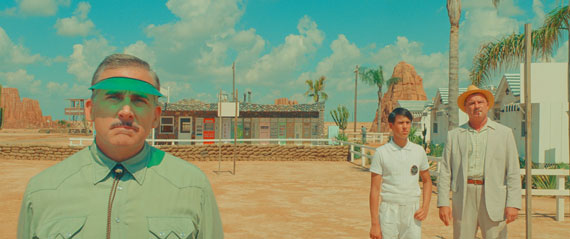
Image credit: L to R) Steve Carell as "Motel Manager", Aristou Meehan as "Clifford" and Liev Schreiberas "J.J. Kellogg" in writer/director Wes Anderson's ASTEROID CITY, a Focus Features release. Courtesy of Pop. 87 Productions/Focus Features.
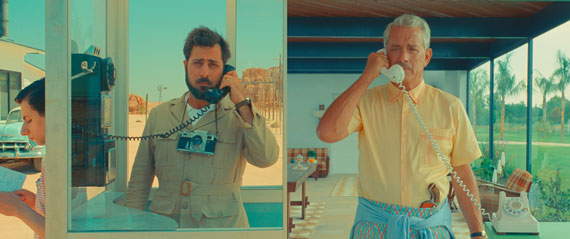
Image credit: (L to R) Jake Ryan as "Woodrow", Jason Schwartzman as "Augie Steenbeck" and Tom Hanks as "Stanley Zak" in writer/director Wes Anderson's ASTEROID CITY, a Focus Features release. Courtesy of Pop. 87 Productions/Focus Features

Image credit: Photo: Daniel Jackson
This article was originally published in VAULT Magazine Issue 43 (August – October 2023).
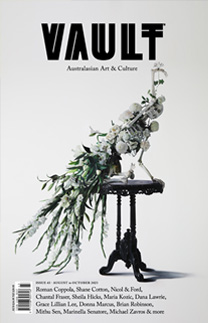
Click here to Subscribe




